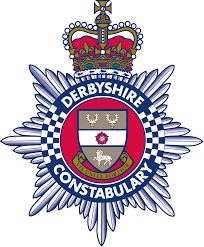
Police warn of consequences of drink driving
Posted by: Belinda Hargreaves
Fri 15th March 2024
Police in Derbyshire are continuing a month-long campaign to raise awareness of the ‘Fatal Four Offences’ for drivers.
A spokesman for Alfreton Police SNT said: “Over the month of March, we are sending out advice around the Fatal Four Offences – Drink or Drug driving, speeding, using a mobile device while driving and not wearing seatbelts.
“These four are the top road offences which cause collisions and serious injuries on our roads.
“Here we focus on driving under the influence of alcohol or drugs.
“There is no way to know how much you can drink and stay under the limit, since it can depend on your weight, age, metabolism, the amount of food you’ve eaten and other factors.
“So, our message is – if you’re driving – avoid drinking any alcohol at all. Even just the one.
“The legal alcohol limit in England, Wales, and Northern Ireland for driving is 80 milligrams of alcohol per 100 millilitres of blood, or 35 micrograms of alcohol per 100 millilitres of breath.
“It is impossible to get alcohol out of your system quickly, it always takes time.
“Ways of ‘sobering up,’ such as having a shower, or a cup of coffee, may make you feel better – however it will not remove the alcohol from your system.”
The spokesman continued: “Drug driving is different – it is an offence to drive with any 17 of the 17 controlled drugs above a specified level in your blood – this includes illegal and legally prescribed drugs.
“The limit set for each drug is different, and for illegal drugs the limits set are extremely low. They are not zero to rule out any accidental exposure (e.g., from passive smoking).
“You should always check with your doctor or pharmacist if you are unsure about whether your prescription or over-the-counter medication will affect your ability to drive.
“The biggest risk you take when driving under the influence of alcohol or drugs is the risk of causing a collision.
“It is also extremely dangerous and can affect your driving in numerous ways, such as: ability to judge speed and distance; reaction and coordination skills; blurry or impaired vision; Drowsiness; Aggression; erratic behaviour; panic attacks and paranoia; Hallucinations; Nausea; Dizziness; Tremors.
“Alcohol and drugs can also create a false confidence which can lead to an increase in risk-taking behaviour, which puts your life and the lives of others in danger.”
the spokesman continued: “The police can stop you at any time and ask you to take a breath test (‘breathalyse’ you) if: they think you’ve been drinking; you’ve committed a traffic offence; you’ve been involved in a road traffic collision.
“If you refuse to take a breath test or fail to supply a sample of breath and don’t have a ‘reasonable excuse,’ you can be arrested.
“A reasonable excuse could be a genuine physical or mental condition stopping you from giving a sample; in this case you may be required to have a blood test.
“The breath test gives a result straight away. If it shows you’re not over the drink drive limit, you may be allowed to go.
“If you fail the breath test, you’ll be taken to a police station and given a final breath test. If it’s positive, you’ll be charged.
“The police can stop you and conduct a roadside screening test or a field impairment test, both of which may result in your arrest if: they think you have taken drugs; you’ve committed a traffic offence; you’ve been involved in a road traffic collision.
“Officers can test for cannabis and cocaine at the roadside, and screen for other drugs – including ecstasy, LSD, ketamine, and heroin – at a police station.
“Even if you pass the roadside check, you may still be arrested if the police suspect that your driving is impaired by drugs, and you can be taken to a police station for further tests.”
The spokesman added: “If you’re found to be over the drink-drive limit, and/or driving while impaired by drugs, you can receive: a criminal record; a maximum penalty of six months in prison; an unlimited fine; an automatic driving ban of at least one year (three years if you have been convicted twice in ten years).
“Other problems you may face include: an endorsement on your driving licence for 11 years; an increased insurance premium; if you drive for work, your employer will see your conviction on your licence; trouble travelling to countries like the USA.
“Penalties for causing death whilst driving dangerously under the influence of alcohol or drugs: If a driver kills someone while under the influence of alcohol, they can be charged with causing death by careless driving while under the influence of drink or drugs (Section 3A of the Road Traffic Act 1988 (as amended by the Road Traffic Act 1991, section 3).
“The maximum penalty is life imprisonment.”
To keep up to date with local policing in our area go to here
What’s been happening in your community? Email our Editor Belinda at editor@spiritof.uk or upload your story and accompanying photo(s) direct to our website here
Business
All things artisan at market
Cost of Living
Get out this Summer for just a £2 bus fare
Crime & Policing
‘Trauma Teds’ to the support rescue!
Education & Skills
Fancy a job looking after the markets?
Health & Wellbeing
Raising awareness of dementia at community event
History & Heritage
Heritage site set to be part of national celebrations
Local Government
Funding available for green energy and carbon reduction schemes
Youth Zone
Thanks go to fundraising race organiser
